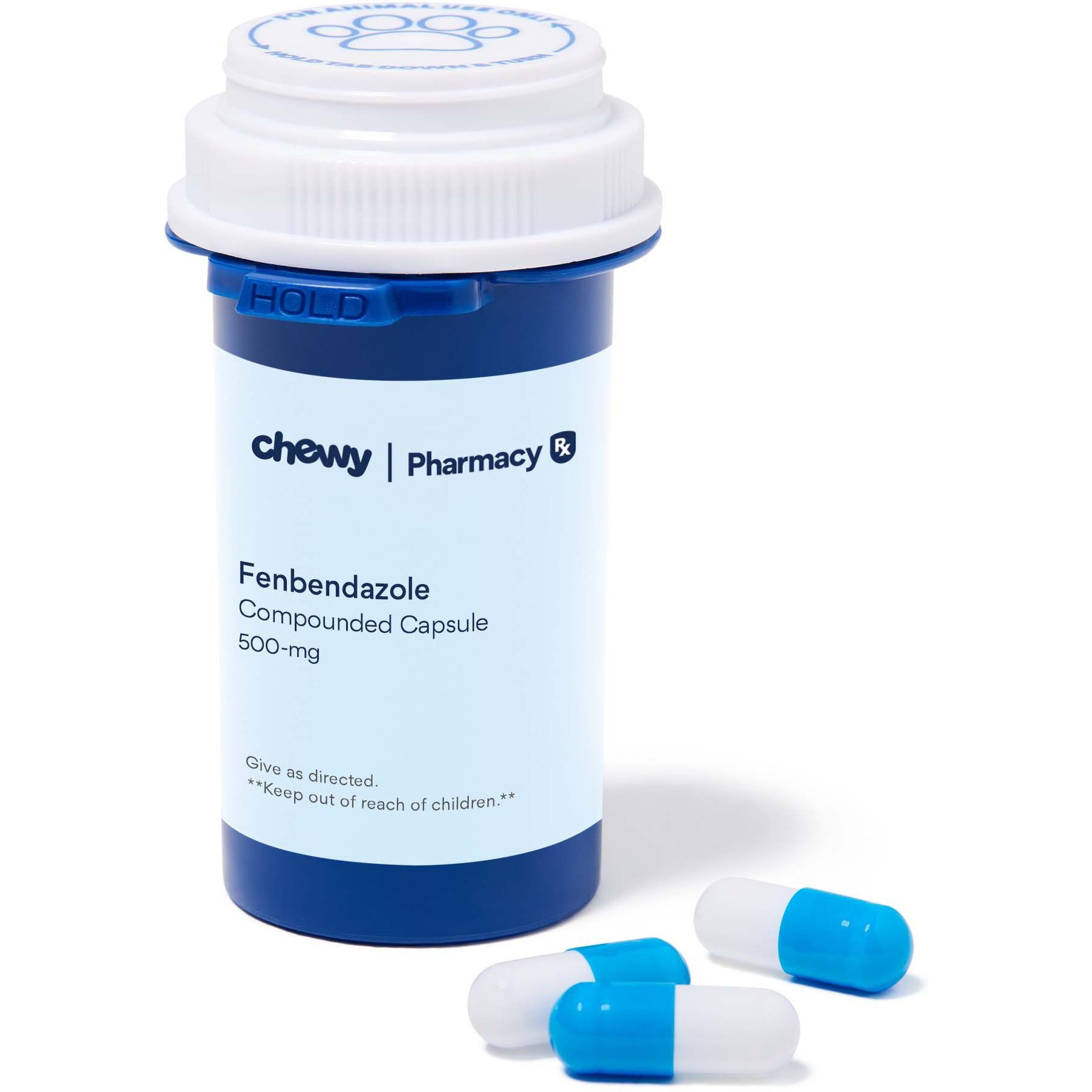fenbendazole: Potential Risks Pet Owners Must Watch For
Discovering the Mechanisms Behind Fenbendazole and Its Impact on Pet Health
Fenbendazole is a widely made use of anthelmintic known for its performance versus various bloodsuckers. Its key device entails the inhibition of microtubule formation, which interrupts crucial processes in these virus. Past its antiparasitic residential or commercial properties, fenbendazole additionally appears to enhance immune actions and possesses anti-inflammatory advantages. Comprehending these complex effects could expose new applications for animal wellness. However, concerns continue to be concerning its full capacity and security account.
The Pharmacokinetics of Fenbendazole
The pharmacokinetics of fenbendazole, an extensively used anthelmintic in vet medicine, entails the research of its absorption, circulation, metabolic process, and excretion within animal systems. After administration, fenbendazole is swiftly soaked up from the intestinal tract, with peak plasma concentrations taking place within hours. Its circulation is influenced by elements such as cells binding and lipid solubility, enabling it to permeate different cells successfully. The medicine undertakes considerable metabolic rate mostly in the liver, where it is converted into energetic and inactive metabolites. These metabolites contribute in the medicine's overall efficiency and safety and security account. Excretion occurs primarily through feces, with a smaller sized percentage gotten rid of by means of urine. The half-life of fenbendazole varies amongst varieties, which influences dosing routines. Recognizing these pharmacokinetic residential or commercial properties is crucial for optimizing its healing usage and guaranteeing effective parasite control in vet methods.
Mechanisms of Activity Versus Bloodsuckers
Fenbendazole exerts its antiparasitic effects primarily via the restraint of microtubule formation in parasites. This disturbance impacts their structural stability and cellular features, causing impaired basal metabolism. Consequently, the medicine efficiently endangers the survival and reproduction of numerous parasitical microorganisms.
Restraint of Microtubule Formation
Inhibition of microtubule formation stands for an essential system whereby certain anthelmintic representatives, consisting of fenbendazole, exert their effects on bloodsuckers. Fenbendazole binds to tubulin, a healthy protein that creates microtubules, interfering with the polymerization procedure needed for microtubule assembly. This interruption impairs crucial cellular features, including mitosis, intracellular transport, and architectural integrity. As microtubules play a vital role in preserving the form and function of parasitical cells, their restraint brings about cell cycle apprehension and ultimate fatality of the bloodsucker. This mechanism is especially effective versus nematodes, as their dependence on microtubules for movement and nutrient absorption makes them at risk to fenbendazole. Consequently, the inhibition of microtubule development is a critical aspect of fenbendazole's restorative efficiency in veterinary medicine.
Disruption of Basal Metabolism
Disrupting energy metabolic process is an additional important device by which fenbendazole targets parasitic organisms. This anthelmintic alters the energy production pathways within parasites, mainly impacting their capability to generate adenosine triphosphate (ATP) By preventing glucose uptake and interrupting mitochondrial function, fenbendazole limitations the energy resources necessary for the survival and recreation of these microorganisms. As an outcome, parasites become increasingly susceptible to environmental stress and anxieties and immune actions. The interference in power metabolic rate not just impacts the parasites straight however also reduces their capability to assimilate nutrients, additionally impairing their development - 222 mg. Generally, the interruption of energy metabolism stands for an essential aspect of fenbendazole's efficiency versus different parasitical infections, contributing greatly to improved pet health results
Potential Negative Effects and Security Account
The possible negative effects and security profile of fenbendazole warrant cautious factor to consider, especially in vet applications. While usually considered secure, some pets may experience negative reactions, consisting of intestinal disruptions such as vomiting and diarrhea. Additionally, neurological symptoms, although unusual, have actually been reported in delicate people, highlighting the demand for monitoring during therapy.

Fenbendazole's safety and security in various varieties, consisting of pet dogs and cats, has been recorded, yet dose and period of therapy need to be thoroughly handled to reduce threats. Pregnant or breast feeding animals may likewise require special interest, as the impacts on creating fetuses or nursing spawn are not totally recognized.
Regular veterinary assessments can aid mitigate prospective negative effects and assure the drug is administered properly. Subsequently, while fenbendazole is a reliable anthelmintic representative, alertness concerning its negative effects is important for keeping pet wellness.

Fenbendazole's Influence on Immune Feature
Fenbendazole has actually been noted for its possible to regulate body immune system actions in animals. Its anti-inflammatory homes may add to boosted immune function, offering a twin benefit in managing wellness (fenbendazole). Understanding these results is crucial for examining fenbendazole's function in veterinary medication
Immune System Modulation

Anti-inflammatory Features
Anti-inflammatory effects represent a significant aspect of fenbendazole's influence on immune function. Study shows that fenbendazole might minimize the manufacturing of pro-inflammatory cytokines, which are essential in moderating inflammatory actions. By regulating these cytokines, fenbendazole can possibly ease inflammation-related problems in pets. This anti-inflammatory activity not only aids in managing symptoms associated with various illness however likewise enhances overall body immune system efficiency. Furthermore, its capability to advertise a balanced immune reaction helps protect against too much inflammatory damage, which can lead to persistent health and wellness issues. As a result, fenbendazole's function in inflammation monitoring highlights its importance in vet Visit Your URL medicine, offering a dual advantage of antiparasitic action and immune system support for pet health.
Applications Past Conventional Parasitical Infections
While mainly acknowledged for its effectiveness versus various parasitical infections, fenbendazole has amassed attention for go to this site possible applications yet standard scope. Current studies suggest that fenbendazole might have valuable impacts on mobile health and immune action, making it a fascinating candidate for taking care of other health and wellness problems in animals. Its reported anti-inflammatory buildings may provide relief for pets experiencing from persistent inflammatory conditions. Additionally, some research shows that fenbendazole can play a function in sustaining the total wellness of animals by improving vitamins and mineral absorption and gastrointestinal health. Additionally, its possible as an adjunct treatment in cancer cells therapy has actually triggered interest, as preliminary findings suggest it may hinder lump cell development in certain contexts. These diverse applications highlight fenbendazole's versatility, motivating additional exploration right into its complex advantages for animal health beyond its standard usage as a deworming representative.
Future Study Instructions and Effects for Pet Health And Wellness
The exploration of fenbendazole's prospective applications has opened brand-new opportunities for research study targeted at boosting animal wellness. Future researches can concentrate on its efficiency against a wider range of pathogens, including microorganisms and viruses, thus expanding its duty in vet medicine. The implications of fenbendazole's devices, such as its effect on immune modulation, warrant further examination to comprehend how it can strengthen total health and wellness in various varieties.
Furthermore, research might explore perfect does and formulas to maximize effectiveness while lessening prospective side effects. Exploring fenbendazole's synergistic results with other medications can result in extra efficient treatment procedures. Longitudinal studies examining long-term results in pets treated Continued with fenbendazole could give important understandings into its security and effectiveness. Generally, the continued exploration of fenbendazole supplies promising capacity to boost pet health, requiring a joint method amongst scientists, vets, and pharmaceutical designers to help with improvements in this location.
Regularly Asked Questions
Can Fenbendazole Be Utilized in Animals for Bloodsucker Prevention?
The inquiry of whether fenbendazole can be made use of in livestock for parasite avoidance is relevant, as producers seek reliable therapies (fenbendazole 444). Research indicates it may give benefits, but appropriate guidelines and vet suggestions are vital for secure usage
What Is the Recommended Dose of Fenbendazole for Various Pets?

Exist Any Kind Of Understood Medication Interactions With Fenbendazole?
Present understanding indicates that fenbendazole might engage with particular medications, potentially impacting their efficacy or metabolism. Veterinary specialists advise seeking advice from with a vet to examine private animal cases and determine any feasible communications prior to administration.
How Does Fenbendazole Compare to Other Antiparasitic Medications?
Fenbendazole is frequently compared to various other antiparasitic drugs based upon efficiency, range of task, and security profiles. It is favored for its efficiency against a large range of parasites while usually showing very little side effects in pets.
Is Fenbendazole Effective Against Viral or Microbial Infections in Animals?
The performance of fenbendazole against viral or microbial infections in animals continues to be unproven. Study largely concentrates on its antiparasitic buildings, with restricted proof supporting any kind of function in dealing with non-parasitic infections in veterinary medication.